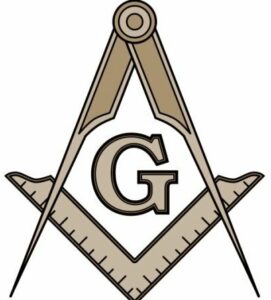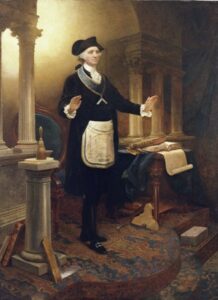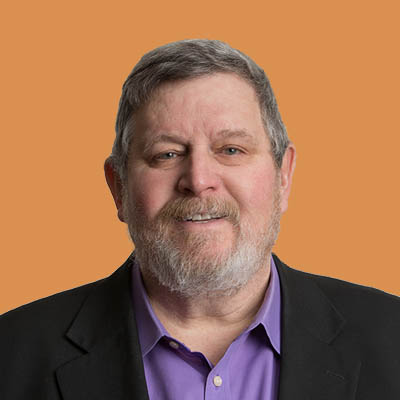
For many Christians, this may seem like an odd question. If their journey is similar to mine, they may know little or nothing about freemasonry. My dad wasn’t a freemason . . . that I know of, nor was anyone in my family, on either side. Again, not that I know of. What are freemasons to me? I have heard about them for years, but seldom given them a thought.
Freemasonry has been a part of the American experience since before nationhood. George Washington, Paul Revere, Benjamin Franklin and others in the earliest days of our nation were a part of the fraternity. Eight of the fifty-six founding fathers were freemasons as well as fourteen of our forty-six presidents, including Harry Truman, a Baptist as well as a mason.
 Among the list of prominent freemasons globally are the names Samuel Clemens, aka Mark Twain, American literary figure; Winston Churchill, former Prime Minister of England; Earl Warren, former Chief Justice of the Supreme Court; John Glenn, American astronaut and former US Senator; and J. Edgar Hoover, former Director of the Federal Bureau of Investigation. Freemasonry has a robust presence in American life.
Among the list of prominent freemasons globally are the names Samuel Clemens, aka Mark Twain, American literary figure; Winston Churchill, former Prime Minister of England; Earl Warren, former Chief Justice of the Supreme Court; John Glenn, American astronaut and former US Senator; and J. Edgar Hoover, former Director of the Federal Bureau of Investigation. Freemasonry has a robust presence in American life.
However, freemasonry, as a “secret society,” has been a problem for many Christian groups, perhaps with good reason. As one rises in the ranks of freemasonry, there are certain “secrets” that one learns that are not to be shared with non-masons. Aspects of their ritual are shrouded in secrecy. With the advent of things like the internet, few secrets remain for the world of masonry. But this secrecy is one of the reasons many Christian groups reject freemasonry.
In 2009, the Christian Missionary Alliance adopted a report that declared that freemasonry, as a secret society, “is not compatible with confession of faith in the Lord Jesus Christ.” Included in the report to their denomination was a list of other Christian groups who have formally espoused similar positions on freemasonry including the Roman Catholic Church, various Lutheran groups such as the Wisconsin Evangelical Lutheran Synod, Orthodox churches, various Presbyterian groups, some Methodist groups, the Assemblies of God, and others.
Strangely missing from the list of the CMA cobelligerents against freemasonry is any significant Baptist group. The two exceptions are the General Association of Regular Baptists and the Baptist Union of Scotland. What about the Southern Baptists? The CMA report goes on to summarize the history of the SBC regarding freemasonry. The issue was put before the Convention in 1992. As a result, the question was studied and a report was presented the following year. The report spoke of the incompatibility of freemasonry with Baptist doctrine along eight lines. Yet despite the negative report, the SBC Home Mission Board recommended to the Convention that “in light of the fact that many tenets and teachings of Freemasonry are not compatible with Christianity and Southern Baptist doctrine, while others are compatible with Christianity and Southern Baptist doctrine, we therefore recommend that consistent with our denomination’s deep convictions regarding the priesthood of the believer and the autonomy of the local church, membership in a Masonic Order be a matter of personal conscience. Therefore, we exhort Southern Baptists to prayerfully and carefully evaluate Freemasonry in the light of the Lordship of Christ, the teachings of the Scripture, and the findings of this report, as led by the Holy Spirit of God.” The SBC took no united action in the matter of freemasonry, although they have sought to clarify their statement. The North American Mission Board has also tried to show the real problems with freemasonry. Despite these actions, Southern Baptists have not responded with one voice on this matter, as individual churches have continued to have conflict over the issue. Many freemasons remain committed to both their church and freemasonry.
All of this may be interesting reading, a discussion of an obscure aspect of Christian history that many believers have little connection with. Why should this occupy my thinking these days and why should this occupy an essay this week? My first real acquaintance, up close and personal, with freemasonry came at a funeral several years ago at a Baptist church in Georgia. At the internment service, the man being laid to rest was given a funeral burial ceremony by his Masonic brothers. It was interesting with their white aprons and sprigs of evergreen. I had never seen this before and, while I knew of Masonry’s existence, I had never been in close proximity to freemasons to become more acquainted with their practices. I knew from the general study of American religious history that there were anti-masons among some Christian groups. I was aware that Charles G. Finney had been a mason and repudiated the practice, but I had never made this a matter of personal study until last month. I was asked to complete the work of another Baptist historian who suddenly was taken home to heaven. It was a planned biography of a lesser known but important Baptist minister of the late 18th and early 19th century. Would I be willing to finish this work for publication?
I agreed to consider the project and was shipped a box of material that my deceased friend had collected over the past several decades in preparation for this writing project. Included in the box was a printed sermon, dated 1800, that the subject of the book preached to a Grand Lodge meeting of freemasons held in a Baptist church. It seems that this man, a well-known Baptist pastor, had been a freemason. When I discovered this fact, I contacted the prospective publisher to discuss this revelation. He knew of the man’s masonic associations. He informed me that many Baptists have been freemasons and listed several names. While I knew that Baptist laymen were freemasons, a Baptist pastor or denominational leader as a mason? I wondered how this could be. I suppose if Baptist pastors could have been slaveholders, why couldn’t they have been masons? Of course this question suggests my inclinations were contra freemasonry, or what I thought it to be. Nevertheless, I just hadn’t considered the possibility of Baptist pastors as masons. However, if I did this book, it seemed that I needed to explore Baptists and freemasonry. Shouldn’t be too hard. There must be literature on the subject somewhere. I began to look.
In fact, I discovered numerous Baptist leaders down through the years have been freemasons, some of these men being well known, especially in the Southern Baptist world. Among the list of prominent SBC freemasons were Benajah Harvey Carroll (1843–1914), a Texas preacher who led in the formation of Southwestern Baptist Theological Seminary of Ft. Worth in 1908. Also George W. Truett (1867–1944), longtime pastor of First Baptist Church of Dallas, president of the Convention for a couple of years, and also president of the Baptist World Alliance (1934–1939). More recently, Baptist historian H. Leon McBeth and Southern Baptist statesman Herschel Hobbs were freemasons. This took me deeper into exploring the relationship between Baptists and freemasonry. How could Finney see a problem, but Baptists could not?
I am still in the midst of this investigation, but so far, what has become apparent is that while there were and likely are a number of Baptists among the freemasons (Southern Baptist estimates as of 1993 were between 400,000 and 500,000 members of both SBC churches and masonic lodges), since the end of the 18th century, Baptists began to question the relationship between freemasonry and Christianity. Was it possible for a Christian (or a Baptist) to simultaneously be active as a Christian and at the same time be a freemason? To date I have been unable to find any serious scholarship on Baptists and freemasonry. So, I decided to write an essay on this topic. It has been eye-opening to be sure.
At this point, I have not fully answered the question of the title to this essay either in my own mind or in writing—Can a Christian be a faithful believer and be a freemason? In the process of studying the Baptist relationship with freemasonry, I discovered a useful essay on this very question from the Gospel Coalition early last year. There is also this very helpful paper in The Master’s Seminary Journal in 1994. Both offer very helpful critiques of freemasonry. I will leave to a sovereign God the determination of who is in the faith and who is not. The more I study of freemasonry, the less compatible with Christianity it seems. If this is so, how could so many “good” Baptist brothers be committed masons? More to follow . . .

Jeff–
Since you are just beginning your “investigative judgment” (oops, sorry–that’s Adventism!) of Freemasons, let me share the limited resources I have with you, in case you haven’t run across them yet in your research.
1. “A Frank Exposure of Freemasonry,” (no author, no date), “reprinted from the Baptist Examiner, Ashland Kentucky.” 43 pp.
2. “Lodges Examined by the Bible” by John R. Rice. (Sword of the Lord, 1943). 80 pp.
3. “The Secret Teachings of the Masonic Lodge: A Christian perspective,” by John Ankerberg and John Weldon (Moody Press, 1990), 333 pp.
I know that Robert Sumner with some frequency wrote against the masons in “The Biblical Evangelist” but I have no index of that publication to locate relevant articles.
Both my grandfathers were “masons,” one a So. Bapt. deacon and occasional lay preacher, the other a “Christian Church” member. Neither seemed to be especially active or ever encouraged me to join, and neither had an extensive or detailed understanding of Bible doctrine, and I think that is the key–the less you know about the Bible, the less likely you are to spot “problems” with masonic doctrine. Of 21 grandsons of the Baptist grandfather, only one followed in his footsteps into the masons.
As for RC opposition to the masons–that stems mostly from the fact that masons historically would not let RCs join–so the RCC started its own fraternal lodge–the knights of Columbus. But I suspect you already know all this.
“Mahabone”!
Thanks for the feedback, Doug!
I recommend both works Doug included in #2 and #3. I am not familiar with the others. The one by John R. Rice came from very close personal experience: John Rice, Lodges Examined by the Bible: Is it a Sin for a Christian to Have Membership in Secret Orders? (Murfreesboro: Sword Of The Lord Foundation, 1931, 1943, 1971); on Choosing Truth Ministries at http://www.ctmin.org/pdf/johnrice.pdf [accessed 6 APR 2021].
I also recommend the following.
R. B. Kuiper, Oscar Holkeboer, Arthur O. Olson, Robert A. Wallace, and Paul Woolley, “Report of the Committee on Secret Societies, Presented to the Ninth (1942) General Assembly of the Orthodox Presbyterian Church,” on The Orthodox Presbyterian Church at http://www.opc.org/GA/masonry.html [accessed 6 APR 2021].
Note: The summary of the findings of the OPC was published as Christ or the Lodge (Philadelphia: Great Commission, 1942). This pamphlet appears to have been out of print for some time.
Alva J. McClain, Freemasonry and Christianity (Winona Lake: BMH, 1983); on Spirit Watch at http://www.spiritwatch.org/Masontract.pdf [accessed 6 APR 2021]; and on Gospel Outreach at https://www.gospeloutreach.net/freechrist.html [accessed 6 APR 2021].
Note: Print editions of McClain’s booklet are readily available for $1.49 to $1.50 on Amazon, Christianbook, and BMH Books. “Dr. Alva J. McClain (1988-1968) was the founding president of Grace Theological Seminary and Grace College and served in that capacity from 1937 until his retirement in 1962, when he was named president emeritus. In addition, he served as professor of Christian theology at Grace Theological Seminary. He previously taught at the Philadelphia School of the Bible, the Bible Institute of Los Angeles, Ashland College, and Ashland Theological Seminary. A widely known lecturer and writer, he was a charter member of the Evangelical Theological Society, served on the Scofield Reference Bible Revision Committee, and was a member of Phi Beta Kappa.” Source: BMH Books at https://bmhbooks.com/writer/alva-j-mcclain/ [accessed 6 APR 2021]. He is perhaps best know for his book, The Greatness of the Kingdom: An Inductive Study of the Kingdom of God (Winona Lake: BMH, 1959).
Thanks for the info
Very informative research / I believe that darkness cannot have communion with Light ? And what does a believer have to do with an unbeliever ? The scriptures are true / they ( secret societies ) shall creep in unaware among you and they shall bring damnable heresy even denying the Lord thy God that bought them ? I believe the powers of darkness are work in these secret organizations/ as our Lord revealed : in vain do they worship me teaching after the traditions of men / commandments of men and doctrines of devils / rev 18;4 come out from among her my people that yea be not part of her sins that yea suffer not her plaques / I believe the her is ( Rome ) known as the mother church ( Roman Catholicism) and she has daughters of wickedness ( false religious work based salvation cults /. Many daughters / example : Mormons / Jehovah witnesses/ 7 day Adventist/ these 3 had Freemasons preachers who started these cults / in 1800s / no doubt today it is run rampant across the world / many shall be deceived says the Lord and led astray like lambs to slaughter house ( Hell )!
Amen and well spoken
Dr. Straub
I have studied this topic since 1972. I have many books on the topic by reputable sources. I would like to help you explore this topic. Please call, John Dudley
Thanks John
I am wondering where can we get a list of southern Batiste members. Do you know if Al Mahler is a Freemason ? Thanks for taking the time to reply in advance. I have been studying this topic recently.. I can’t comprehend how one can be a Freemason and and follow Jesus..
Regrets I have no list of current SBC freemasons
Jeff,
I have read part 1 and 2 of this essay. I found it interesting.
I am a Freemason of about 10 years and a Christian.
Upon being made a Mason I was given a King James Masonic Bible which I assure you is no different from the King James Bible my godfather gave me when I was baptized many years ago in the Episcopal Church–it just has a square and compass on the front and a short introduction. The books within are all the same word for word. What the gift of the Bible taught me was that the Bible is what is most important, not what any man , woman , or church or denomination tells you it says or does not say. This is what to me is so cool particularly as we see more of a society that lives in the “if it feels good do it” way of life. The Bible matters!
Perhaps I am more of a Baptist now than anything else because of the respect Baptists show for the Bible.
With that, the reason the subjects of politics and religion are not discussed in lodge is because people of different denominations and faiths belong to the lodge. We admit men of high character and strong morals. All individuals who visit are deserving of kindness and respect.
Masonry may not be for everyone, but know that it is a worthwhile organization for its members and does a lot of good in society with our hospitals and charities.Otherwise, we would not claim men like George Washington, Ben Franklin, and President Harry Truman among our members.
Andy, when you mentioned that other denominations and faiths belong to the Lodge, I assume this would include Mormons, Muslims or anyone who professes faith in God or a god. If this be true, then the God or Great Architect of the Universe, that is taught in Masonic Rites would have to be a universal god so that all faiths could adopt it as their god when performing the said rites. This seems to be in disagreement with what Paul wrote in 2 Corinthians 6:14 and 17 about being yoked with unbelievers and separating from those who are not following the living God and professing Jesus Christ as Lord. As you well know, there is only one God. All others are false gods. If you are not free to discuss religion in the lodge then how can you fulfill the Great Commission and tell those lodge brothers that Jesus saith unto him, I am the way, the truth, and the life: no man cometh unto the Father, but by me. And: I am the LORD thy God, which have brought thee out of the land of Egypt, out of the house of bondage. Thou shalt have no other gods before me. Respectfully, Matt Chaffin
Comments are closed.
Was Billy Graham a Mason of the 33rd degree?
Apparently not. http://www.midnightfreemasons.org/2011/11/billy-graham-freemason-or-not_24.html
My Grandfather came to faith in Jesus as a 45 yr old, and was a 32d degree mason and leader of his lodge in a small South Dakota town. After coming to faith in Jesus, he immediately saw the contradictions and turned in his books and robe in, and never discussed it again.